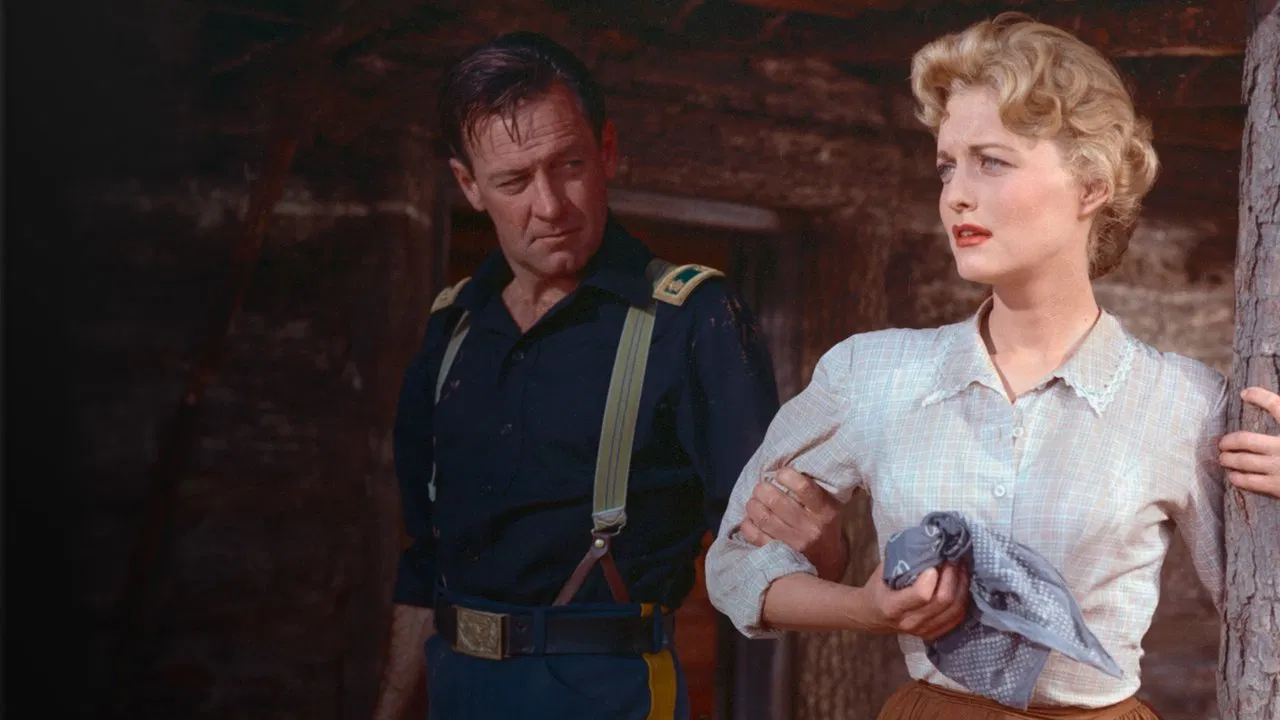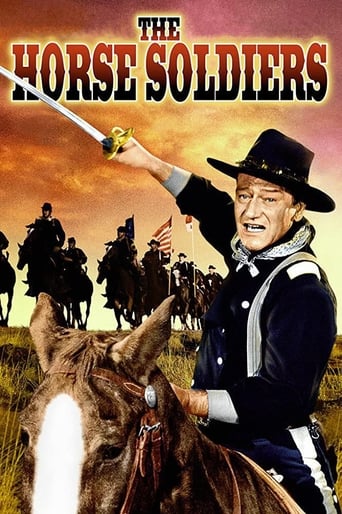

There was a General William Barksdale from Mississippi, who died at Gettysburg. I caught the cadet's last name, and wonder if it was a play on words, or was the young man his son? Anyone?
... View MoreThe premises of this movie are hokey Hollywood nonsense. No medical staff would be insubordinate like Holden portrays, and in the field he'd be required to keep to his assignment and jump to when ordered. Nor would his commanding officer be fetching his bag upon orders, etc. Utter nonsense. The female lead, knowingly spying, if not shot would have been tied up and gagged and never gotten away with the rubbish she carries on in this movie. And the politician was so overly bad as to be something from a Laurel and Hardy slapstick comedy. Ugh.
... View MoreTo begin with, this has nothing to do with the historical events movie was based on. Now we come to the "Southern Bell" Spaying and how she was treated. Any self respecting commander with a battalion behind the enemy lines, discovering a spy would first and foremost have the responsibility towards his me. She would be shot on the spot. She would not be dragged with the company. Then she tried to escape. Again, she was not being dealt with. Then she tried to warn the Southern patrol, nothing again. Seriously. . Now about John Wayne's "Tough guy" character. His representation of an army officer in all the movies I saw him in such a role is totally over acted, unrealistic and down right stupid.
... View MoreThough both are Union officers, Colonel John Marlowe (John Wayne) and Major Henry Kendall (William Holden) find themselves on opposite sides of an emotional divide while marching their troops to a Confederate supply station with the intention of blowing it up. Marlowe is the no nonsense, get the job done type, while Kendall shows a compassionate side that more modern times might have qualified him as a conscientious objector. Their march to Newton Station is interrupted by a brief stay at Greenbriar, where proprietress Miss Hannah Hunter (Constance Towers) has the misfortune of being caught eavesdropping on Marlowe's plan to destroy Newton Station and continue a southward march all the way to Baton Rouge.Unable now to leave Miss Hunter and her personal servant Lukey behind, Marlowe is forced to bring them along to prevent the enemy from learning of his plans. I was rather surprised to learn that the role of Lukey was portrayed by early Wimbledon tennis star Althea Gibson in her only significant screen appearance. I'm kind of curious how she added this job to her resume, there's got to be a good piece of trivia in there someplace.Played pretty much as a straight Civil War drama, there's a curious segment in the second half of the picture in which the elderly administrator of the Jefferson Military Academy sends his teen-aged cadets out to do battle in support of the Southern cause when Marlowe's troops enter the area. Wisely, though somewhat unexpectedly knowing John Wayne's persona in films like these, his character Marlowe calls for a bugle retreat so as not to engage the youngsters in what would have been a horrific massacre.Oddly, once the objective is reached and mission accomplished, the film ends rather abruptly at a point where it looks like one more stand is about to be encountered, the Baton Rouge objective having been cited more than once. Equally questionable, Colonel Marlowe declares his love for Miss Hunter in a head scratcher of a plot contrivance considering all that went before. If anything, it should have been Holden's character to attract Miss Hunter's affections considering the amount of time they spent together tending to wounded and dying soldiers.
... View More